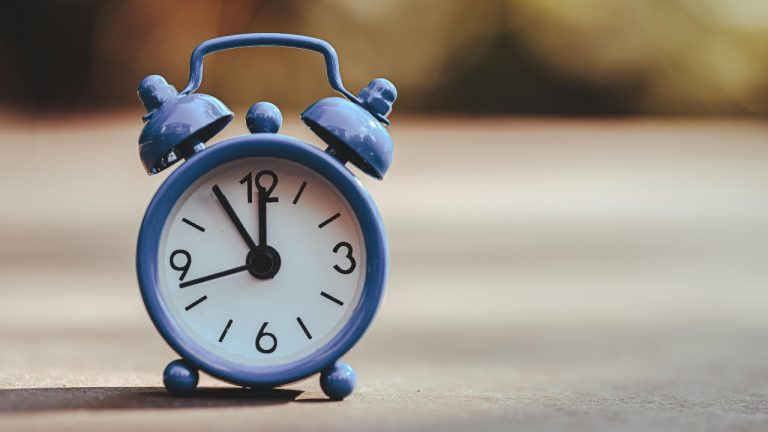You can tell a lot about a person by the way they sleep. Not just how long but when. The early risers, eyes open before sunrise, already scrolling headlines. The night owls, blinking at 2 a.m., convinced the internet suddenly became interesting again. Somewhere between those two tribes is the rest of us trading rest for relevance.
The glow of a screen has replaced the glow of the moon for millions. Funny how that happens.
The Morning People: Those Who Chase Control
If your alarm starts before the birds, chances are you crave order. Morning people are planners. They like lists, routines, and the satisfaction of a checked box. The world feels quieter at 5:30 a.m., safer somehow, no notifications, no noise. Just coffee steam, still air, and a sense that life can be managed if you start early enough.
But let’s be honest. Waking up early isn’t always about discipline. Sometimes it’s about anxiety. The need to get ahead before the day gets messy. Studies call it “proactive coping.” In plain words: control what you can before chaos wakes up.
You can spot these types in gyms, on jogging paths, in that smug Instagram post that reads “Rise and grind.” They aren’t wrong. They just live in a world that rewards punctuality over presence.
The Night Owls: The Creatives, the Rebels, the Restless
Then there’s the other camp. The ones who think better under soft lamplight. Their best ideas show up after everyone else has gone quiet. For them, 2 a.m. is less a deadline, more a window the one time no one expects a reply.
Psychologists say night owls often score higher in creativity tests. Something about less inhibition, fewer external pressures. You could call it freedom or escapism. They’d say it’s when their brain finally shuts up long enough to think.
Still, being a night owl isn’t glamorous when the world runs on daylight. Meetings at nine feel cruel. Grocery stores close too early. And no amount of coffee can fix the 11 a.m. regret that comes with four hours of sleep. The trade-off? They live by intuition. They prioritise inspiration over routine.
Because to them, consistency feels like a cage.
The Burnouts: Sleep as a Negotiation
There’s a third category we don’t talk about enough: the “I’ll sleep when I finish this” crowd. You’ll find them hunched over laptops, ordering dinner from apps, eyes glazed from blue light and caffeine. Sleep isn’t a schedule for them. It’s a transaction.
They don’t rest; they recharge just enough.
This group tends to equate worth with productivity. They don’t mean to, but their metrics are brutal hours worked, emails sent, deals closed. They’ll tell you they’re just busy. But if you ask what’s really driving them, you’ll hear something quieter: fear. Fear of missing out, falling behind, losing momentum.
We live in a culture that applauds exhaustion. “You’re killing it,” someone says, meaning “you look like you haven’t slept.” And so the pattern continues until one day, the body files a complaint.
The Weekend Sleepers: Rest as Rebellion
If you’re catching up on all your sleep on Saturday, you’re not lazy. You’re probably over-committed. The modern workweek squeezes energy dry, so weekends become repair zones. You wake late, scroll a bit, maybe nap again. And when guilt creeps in because it always does you remember all those motivational reels that said “Don’t waste your morning.”
Ignore them. Rest isn’t waste. It’s a quiet protest.
Weekend sleepers tend to prioritise balance eventually. They may push hard through the week but protect their downtime like treasure. They’ve usually learned the hard way that burnout doesn’t earn you bonus points. Only recovery does.
It’s a delicate dance between ambition and sanity. And sometimes, oversleeping is simply the body’s way of saying, enough now.
The Insomniacs: When Priorities Start Arguing
Insomnia is a negotiation gone wrong between the mind and the clock. You want to rest, but your brain insists on replaying a PowerPoint of worries. Bills, texts, what you said in that meeting, what you didn’t.
Insomniacs often carry competing priorities: achievement versus peace, connection versus solitude. They lie awake scrolling, half-hoping for distraction, half-resenting it. And even when they finally drift off, it’s shallow, fragile sleep. The kind that leaves you foggy but functional.
If this sounds like you, you’re not broken. You’re just overstimulated. The modern world isn’t built for calm. It’s engineered for alertness. Every ping, every buzz, every “last episode” countdown tells your nervous system to stay awake.
No wonder rest feels like rebellion.
Cultural Clockwork: Why Our Sleep Became Social Currency
Not long ago, sleep was just… sleep. Now it’s moralised. Productivity podcasts tell you six hours is efficient; wellness influencers insist on eight. We track REM cycles like stock prices. We brag about bedtime routines as if lavender oil and gratitude journals could fix systemic burnout.
Sleep has become a statement about values. Early risers are “driven.” Late sleepers are “creative.” Nappers are “self-aware.” We brand our circadian rhythms because identity sells.
But maybe what our sleep schedule truly says is simpler: what we’re trying to protect.
Time, peace, purpose, attention take your pick.
Technology and the Midnight Mirage
The hardest part of maintaining priorities isn’t work. It’s the glowing rectangle in your hand. Phones blur the boundary between winding down and tuning out. That one harmless scroll before bed? Suddenly it’s 1 a.m. and you’re comparing apartments in Lisbon for no reason.
Technology reshaped our rest. We text from bed, check weather, doom-scroll world events we can’t change. Even sleep apps, meant to help, become another metric to optimise. When everything becomes data, even dreams feel performative.
If you’ve ever fallen asleep to a YouTube playlist that promised “deep focus” and woke up mid-advert, you know the irony. We’re outsourcing calm to algorithms.
The Quiet Shift: Redefining Rest
Maybe the better question isn’t “how much do you sleep,” but “what are you resting from?”
Is it the noise? The expectations? Yourself?
Real rest looks different for everyone. For some, it’s waking early enough to think before the world shouts. For others, it’s staying up late enough to finally hear their own thoughts. And for a few, it’s logging off entirely: no clock, no feed, just silence.
That might be the truest priority of all: choosing presence over performance.
A Tiny Exercise Before Bed
Tonight, when you’re about to crash, pause for a second. Ask, why am I sleeping at this time? Is it fatigue or avoidance? Discipline or habit?
You might find your schedule mirrors your values more than you realised. Maybe you crave order, or creativity, or escape. Maybe you’re trying to catch up with yourself.
Whatever the answer, let it guide you not shame you. The goal isn’t to fix your sleep. It’s to understand it.
Because in a world that worships hustle, knowing when to close your eyes might be the most radical act of clarity there is.
If this made you pause or smile, explore more playful, thought-provoking quizzes on Trendy Quiz because self-discovery should always feel fun.




